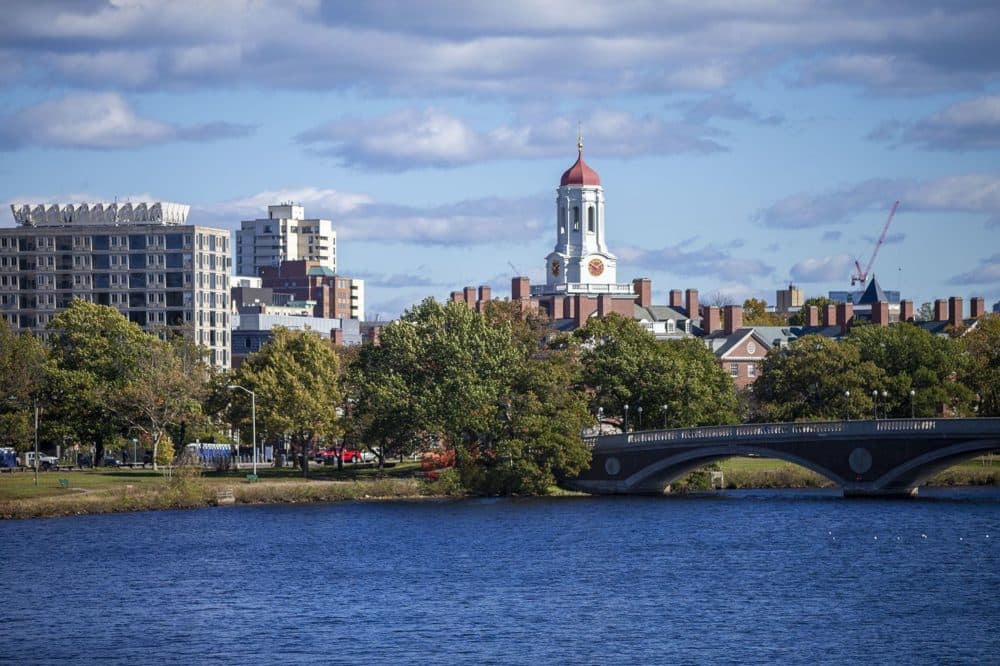Advertisement
Federal education officials take up complaint over legacy, donor preferences at Harvard

Harvard University's admissions preferences for the children of alumni and donors will come under scrutiny by federal officials.
On Monday, the U.S. Department of Education’s Office for Civil Rights said it had opened an investigation into Harvard's use of legacy and donor preferences in response to a federal civil rights complaint filed on July 3 by local groups.
The Boston-based Lawyers for Civil Rights, which is representing the Black and Latino community groups, argues Harvard's admissions practices discriminate on the basis of race, since legacy and donor preferences mostly benefit white students.
The complaint alleges that the beneficiaries of those preferences were roughly 70% white during the period from 2014 to 2019.
The investigation follows last month’s U.S. Supreme Court decision curtailing the use of race in college admissions. In response to that ruling, Harvard affirmed it would continue to "admit and educate a student body whose members reflect, and have lived, multiple facets of human experience."
The local groups behind the complaint argue that if Harvard hopes to preserve diversity, it will have to abandon practices that favor overwhelmingly white and affluent students.
The groups applauded news of the investigation on Tuesday. “Simply put, Harvard is on the wrong side of history,” said Oren Sellstrom, litigation director at Lawyers for Civil Rights.
Sellstrom noted that Amherst College and Johns Hopkins University have eliminated legacy advantages in recent years. Just last week, Wesleyan University in Connecticut joined their company.
“As more and more colleges and universities abandon these unfair practices, those that cling to them will increasingly be seen as outliers,” Sellstrom said.
A study by Harvard economists published Monday found that — when test scores are held equal — the nation's most selective colleges and universities, including Harvard, gave preference to applicants from the highest-earning 1% of American households. The authors attributed about half of that advantage to the fact that many of those wealthy students are legacies.
In response to the complaint, a spokesperson for Harvard said in a statement Tuesday that the university is "in the process of reviewing aspects of our admissions policies to assure compliance with the law" while still welcoming students from "a wide range of backgrounds, perspectives, and life experiences."
At a Tuesday press conference over Zoom, Michael Kippins, an attorney with Lawyers for Civil Rights, declined to speculate about how long the investigation might take, saying the matter was now in the hands of the Department of Education.
But he noted that President Joe Biden signaled openness to scrutinizing the practices at issue.
At a press conference after the Supreme Court decision, Biden said he had asked the Department of Education to analyze practices that “expand privilege instead of opportunity,” explicitly citing legacy preferences.
The complaint was filed on behalf of three Greater Boston groups: the Quincy-based Chica Project, the Greater Boston Latino Network and Boston’s African Community Economic Development of New England.
Zaida Ismatul Oliva, executive director of the Chica Project, said the young women of color the group serves are “really proud” of the steps the group took to file the complaint.
“We want them to see that they have a voice… that they are powerful against these powerful institutions,” Oliva said.
